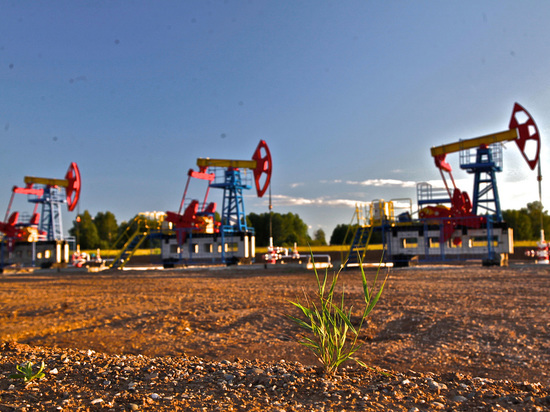Cheap raw materials reduce European refinery revenues
Moscow is not fulfilling its promise to cut oil production by 500,000 barrels by the end of the year, according to Bloomberg. Moreover, according to the news agency, Russia is increasing the export of cheap raw materials, which destabilizes the fuel market and reduces the profits of European refineries. Experts do not see anything surprising in this result: by announcing a price ceiling for our “black gold”, the sanctions states have shot themselves in the foot, forcing Russian miners to give Asian buyers significant discounts, and making the international Brent brand less competitive.

It is not yet possible to confirm the decline in the production of «black gold», announced in March by the Russian authorities, writes Bloomberg. The agency refers to data on the workload of European refineries, according to which the export of raw materials from our country is increasing, and processing exceeds the levels of last year. Based on reports from port agents and a satellite tracking service for tankers, more than 30 sea carriers left Russian ports last week, taking on their boards about 24 million barrels of Russian hydrocarbons. Bloomberg experts are confident that in March-April, the total volume of crude oil on ships heading from our country to China, India and Turkey, and also not indicating the final destination, reached its maximum daily values for 10 months.
However, the increase in foreign shipments of energy carriers from domestic ports does not yet serve as direct evidence that Russian producers do not comply with their obligations to reduce production capacity. Of the European states, only Bulgaria now receives our oil by sea, and the rest of the EU members have declared a moratorium on the import of raw materials from the Russian Federation. The total increase in deliveries in the Asian direction can be explained by the depletion of surpluses of «black gold» accumulated in warehouses. At the same time, it is possible that Bloomberg’s sources are right about something: the reduction in production that began in March should have manifested itself in April export figures, since Russia, unlike Middle Eastern holdings, does not have enough storage capacity oil, moreover, most of the tanks are used for the normal functioning of the pipeline network.
However, the increase in the shipment of hydrocarbons to Chinese and Indian customers, who since this year have become the main consumers of Russian raw materials, should not offend the Europeans, who have declared war on energy resources from our country. They have already managed to inflict their tangible blow on Moscow's foreign exchange earnings, dropping oil and gas revenues of the federal budget in January-March by 45% compared to the same period last year. At first, domestic suppliers were forced to export hydrocarbons at significant discounts, which are only now beginning to slowly decline.
Meanwhile, the introduction of a price ceiling on Russian «black gold» also came back to haunt the Western powers. In particular, Indian refineries actively used discount raw materials from our country, producing ready-made motor fuel and then sending it to the market of the Old World. As a result, the profit of refining a barrel of Brent at an average European refinery, according to Reuters, fell by more than 70%. According to analysts of the consulting company Energy Aspects, in the future the EU countries will face a «hard struggle» with Asia in the oil field: in addition to Russian energy carriers, the inhabitants of the continent have lost access to supplies from Iraqi Kurdistan, escalating the situation with their own raw materials to the limit.
< p>“Russia's western neighbors, primarily EU members, now have to worry about the increase in the export of our“ black gold ”to friendly countries, which contributes to the development and growth of profits of local fuel companies and has a negative impact on their own oil refining. Meanwhile, Europe itself is to blame for this trend: it abandoned cheap Russian hydrocarbons and, in the absence of particular success in promoting green energy, the states of the Old World “shot themselves in the foot”, forcing many national industries to put up with losses,” concludes the financial BitRiver analyst Vladislav Antonov.


